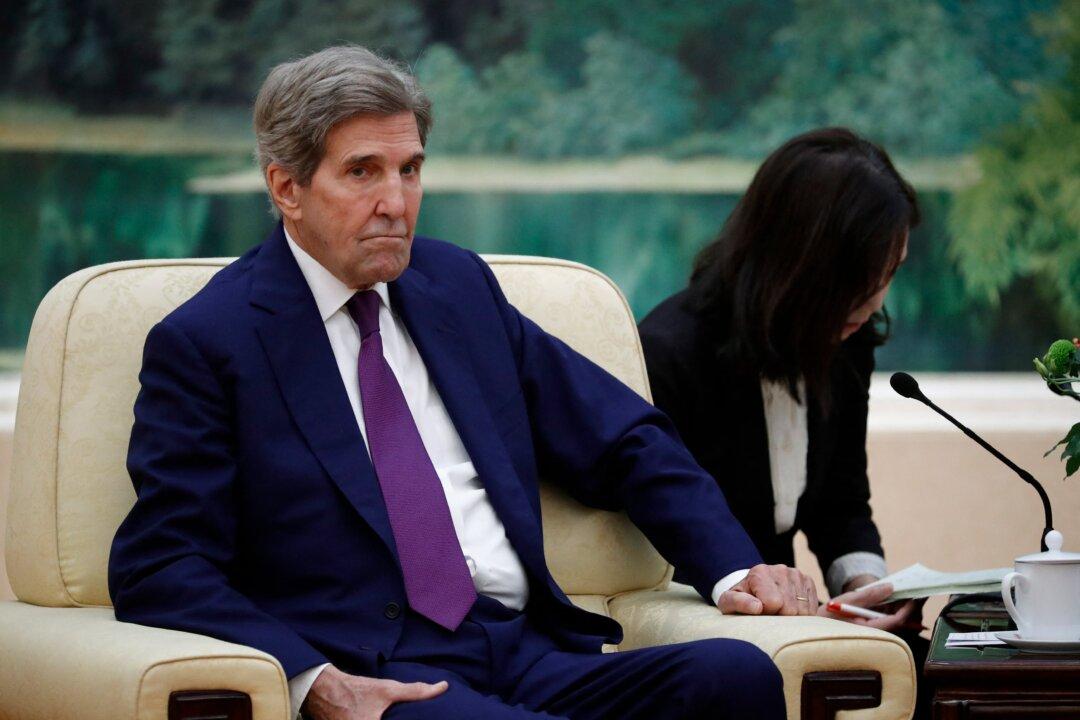U.S. Special Presidential Envoy for Climate John Kerry met with Chinese deputy leader Han Zheng in New York City on Sept. 19 as the Biden administration seeks to stabilize strained relations with China.
The two sides met on the margins of the United Nations General Assembly to discuss the “critical importance of bilateral and multilateral efforts to address the climate crisis,” according to the State Department.





